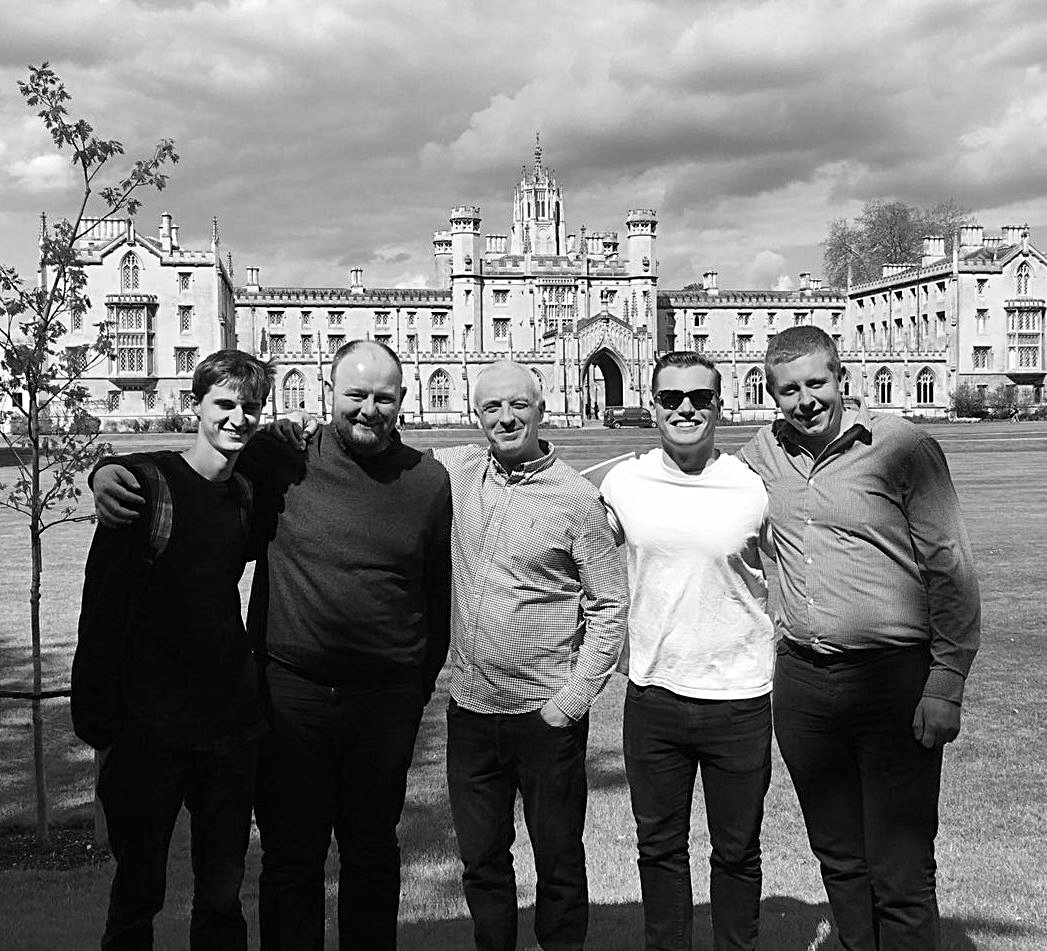It’s hard to believe five years have passed since 29th November 2019, when everything changed for me and many others with the murders of Jack Merritt and Saskia Jones at a Learning Together event at Fishmongers Hall in London. Today is a very similar day—cold, crisp, stark winter sunshine—and perhaps for this reason, other memories of the day feel fresh.
Each anniversary has been difficult in its own way. The first two I dreaded for weeks beforehand, in what I now recognise as a post-traumatic state of agitation. The day still lived vividly and bodily in me then, with the ordeal of the inquest and its media circus either imminent or still recent. The third and fourth anniversaries felt less daunting. As the hiatus of the pandemic lifted, so life began to move forwards again. By the third anniversary, I was in a new job and we were expecting our first baby; by the fourth, he was here. Last year was the first time the anniversary stole up on me, instead of looming in my thoughts weeks ahead.
Now, half a decade on, the event feels both increasingly distant and surprisingly close. Distant, because life continues. We’re all getting older, but Jack (who I knew) and Saskia (who I didn’t) are not. That has a bittersweet taste, but just as long-term prisoners describe finding it hard to relate to family members who are amassing different life experiences to them, so it is with growing older. In my mid-twenties, two close friends—contemporaries of mine, unlike Jack, who was much younger than me—both died. Devastating as that was at the time, it’ll be twenty years next year since they went. Those of us left are living into new lives, where our departed friends might not fully recognise us. Life goes on.
And yet despite all this increasing distance, the day itself, and its aftermath, also now seems very close. Life since has been lived in its shadow. Partly this was circumstantial—the inquest and my PhD made it impossible simply to ‘change the subject’.1 Partly, it was relational—close friendships formed through Learning Together were tested by different reactions to trauma, and not all of them remain. In addition, at the time, both mine and my wife’s work involved prisons, leaving us both with questions about safety and whether to continue.2 Social isolation during the pandemic made brooding easier, and experiencing Learning Together’s slow dissolution proved as devastating as the original incident.
1 The day before the attack, I had finished the first phase of the research, interviewing men serving life sentences for murder at a category-B prison. I finally finished the PhD earlier this year.
Mostly, though, this year, the event feels close because I’ve been writing and thinking about it with the benefit of hindsight and distance. I dislike the cliché that “time heals all”, which cheapens loss and neglects its gnarlier byways. The aftermath of Fishmongers Hall serves as a reminder: some harms aren’t mended, some wrongs go unresolved, and some damage can’t be repaired. It’s a hard world, and sometimes smaller consolations are all that’s available.
But with time, wounds become scars, and scars grow less livid. My feelings have evolved similarly, and what I have to say about what happened feels more coherent than it used to. The incident brought into sharp focus what’s at stake in the aftermath of violence. Some of the resulting thinking went into my lecture to British Quakers this July; more will go into an associated book I’m working on now; and a book from the PhD will hopefully follow in 2025 or 2026. There’s now a sharp ‘before’ and ‘after’ in my life and my career, and the questions I’m left with are live and productive.
Today I revisited Jack’s father Dave’s short article about him, published in The Guardian three days after his death. Dave reflected on Jack’s outrage at how we punish in this country. His piece felt at the time like a powerful intervention in that year’s general election campaign. I vividly remember sitting in the Granta in Cambridge, with mutual friends of Jack’s and mine, the night before publication. They had seen the piece, and I remember their pride in how well it captured Jack’s essence.
I sensed then—mistakenly—that the piece, and the terrible event which led to it, would impact the politics of punishment for the better. That hope was wishful, as well as mistaken. Five years on, we’re deeper into the dysfunction that the last two or three decades of penal policy have bequeathed. A newish government might at last have recognised that many problems relate to sentences themselves and not merely how they are carried out.
I’m cautiously hopeful for what might come from the associated review of sentencing: there are some good people working on the review, though the politics around the policy remain challenging.
But whatever its outcome, and however misplaced my earlier hopes for change, today I want to remember the Jack I knew, so well captured in his dad’s words:
What Jack would want from this is for all of us to walk through the door he has booted down, in his black Doc Martens. That door opens up a world where we do not lock up and throw away the key. Where we do not give indeterminate sentences, or convict people on joint enterprise. Where we do not slash prison budgets, and where we focus on rehabilitation not revenge. Where we do not consistently undermine our public services, the lifeline of our nation. Jack believed in the inherent goodness of humanity, and felt a deep social responsibility to protect that.

Reuse
Citation
@online{jarman2024,
author = {{Ben Jarman}},
title = {Remembering {Fishmongers} {Hall}},
date = {2024-11-29},
url = {https://benjarman.uk/blog/fishmongers-hall-five-years.html},
langid = {en-GB}
}